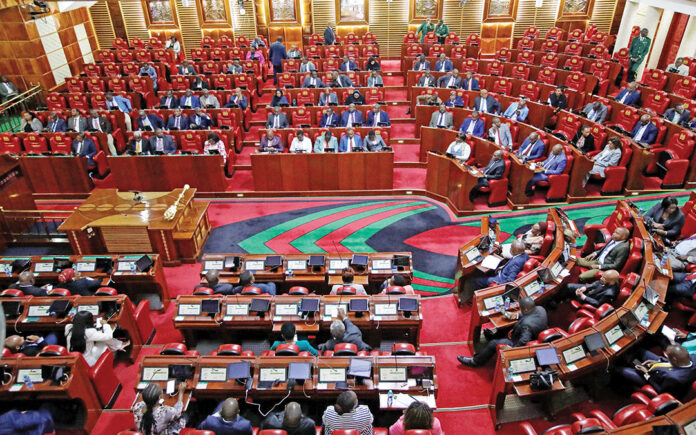Members of Parliament (MPs) are reviewing a petition that seeks to limit loan interest so it never exceeds the original principal, citing the steady rise of unscrupulous lenders with unjustly high repayment charges.
The petition, filed by senior lawyer Allen Waiaki Kishore, calls for amendments to the Consumer Protection Act to formally codify the in duplum rule, which already exists in Section 44A of the Banking Act but remains weakly enforced.
The in duplum rule is a longstanding legal principle that states if unpaid interest equals the principal, no further interest may accrue until part of the principal is repaid.
Historically applied to banks, recent court decisions in Kenya have extended the rule to all lenders, including microfinance institutions, SACCOs, digital lenders, and even private individuals.
“The purpose of the rule is to protect borrowers from exploitation, prevent endless accumulation of interest, and encourage fair lending practices,” the petition stated.
Despite this, banks and other lenders routinely impose additional penalties and default charges that exceed the principal, leaving borrowers exposed to harassment and mounting debt. Courts have issued inconsistent guidance on whether the rule applies before or after loan restructuring and whether penalties count as interest.
The petition asks lawmakers to define precisely when the in duplum rule takes effect, to clarify whether it applies to fees beyond interest, and establish mechanisms for borrowers to recover overcharges.
“The lack of clarity and enforcement undermines public confidence in the financial sector and violates national values under Article 10, especially transparency, accountability and social justice,” the petition also noted.
The initiative also highlights regulatory gaps in Kenya’s lending sector, where many microfinance and digital lenders operate with minimal oversight and impose terms that exceed borrowers’ repayment capacity. Parliament faces the challenge of balancing borrower protection with the practicalities of market enforcement.
The National Assembly referred the petition to the Public Petitions Committee for review, marking a formal step toward potential legislative change, though its practical impact remains uncertain.
Last month, Embakasi East MP Babu Owino (ODM) said that he will pursue a parallel legislation to curb exploitative lending on consumer items including motorcycles and mobile phones.
The lawmaker noted that Kenyans often pay two to three times the original cost of these items when acquired on credit, with interest and fees inflating costs that drove many families to misery.
The push reflects growing concern over predatory lending in the informal sector, where high-interest credit traps ordinary borrowers despite existing legal safeguards in the Consumer Protection Act like the in duplum rule.



















